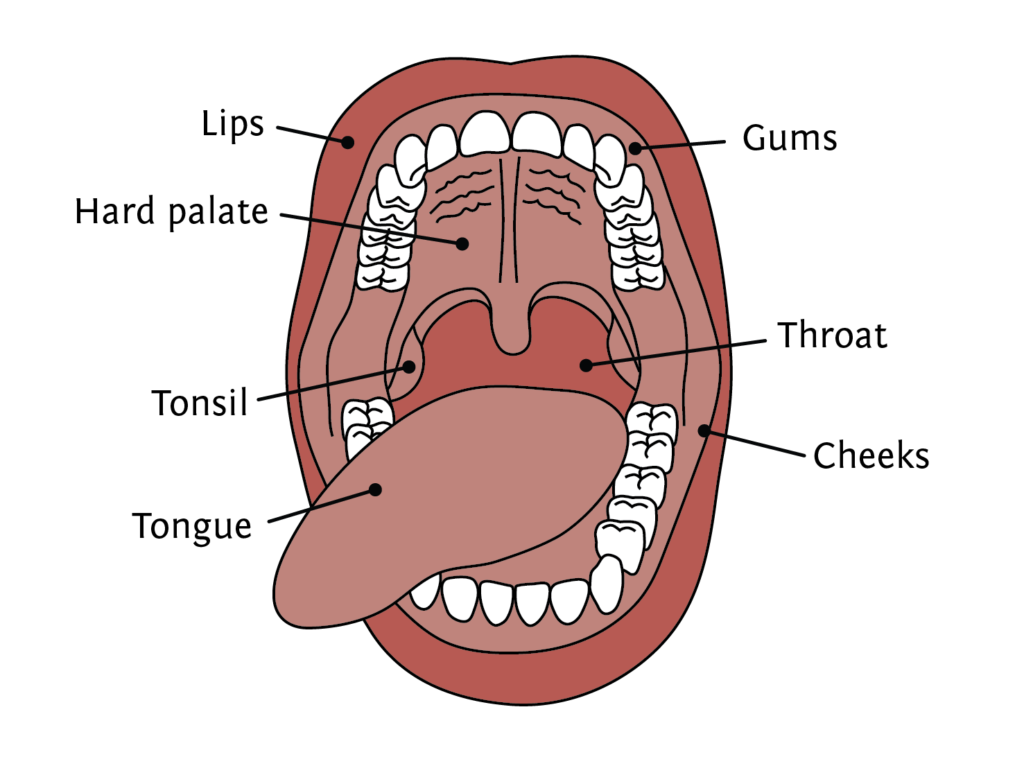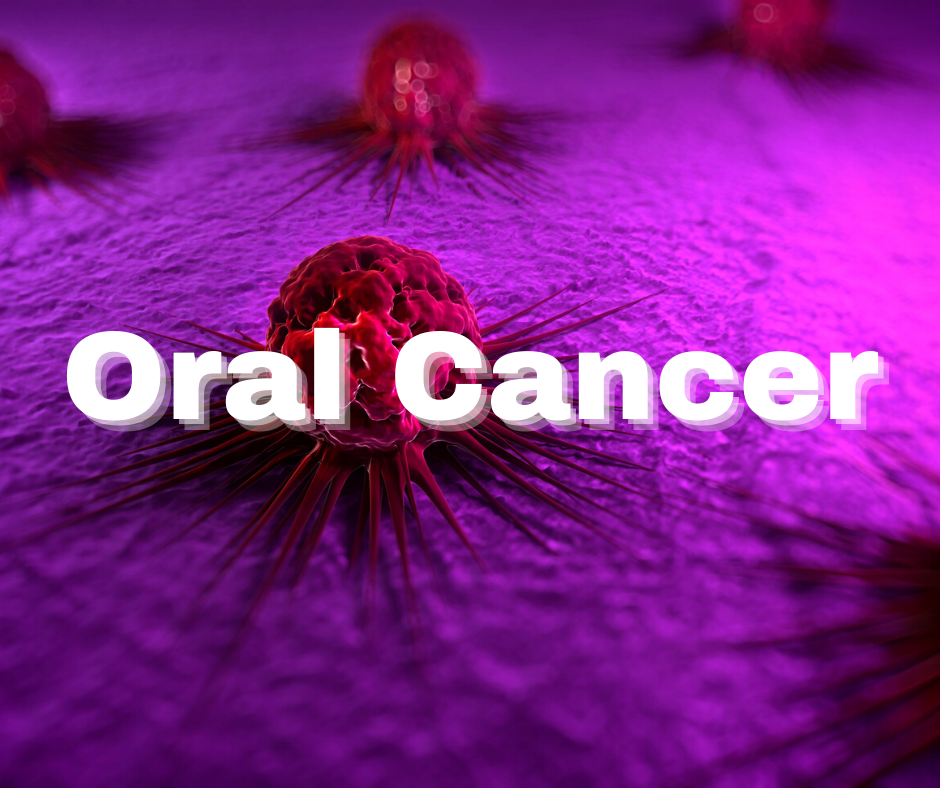What is oral cancer?

Oral cancers develop in the mouth or throat and can form in areas such as the cheeks, under the tongue, gums, back of the throat, and lips.
There are about 53,000 new cases in the united states every year. According to the Oral Cancer Foundation, of those 53,000 new cases, only 57% of them will be alive 5 years from now
Causes of Oral Cancer
Activities and habits that can increase the risk of developing mouth cancer include:
- Tobacco use
- Alcohol use
- HPV (human papilloma virus)
- Sun exposure
Signs and Symptoms of Oral Cancer
Mouth cancers can present themselves in many ways. The main danger of oral cancers is that in the early stages you may experience no obvious symptoms, like pain and swelling. If you have one of the following symptoms that persists longer than 2 weeks, schedule an appointment with your dentist or doctor.
- White or red patches, lumps
- Ulcers/sores, comparable to a canker sore
- Sore throat or feeling that something is caught in your throat
- Difficulty chewing, speaking, swallowing
- Difficulty moving your jaw or tongue
- Swelling of your jaw
- Numbness in tongue or other areas of your mouth
- Ear pain
Tissue changes of the mouth happen regularly, such as biting your cheek, and can look similar to oral cancer. That is why you need to keep in mind that if any of the symptoms persist longer than 14 days, or you have sore that does not heal in that time, to call your doctor or dentist asap. “historically the death rate associated with this cancer is particularly high not because it is hard to discover or diagnose, but due to the cancer being routinely discovered late in its development.” – The Oral Cancer Foundation
Early Diagnosis and Prevention
There are steps that you can take to ensure you catch oral cancers as early as possible. When it comes to early diagnosis the best thing you can do is visit your dentist regularly every 6 months. You can request an oral cancer screening at your visit, although it is not covered by many dental insurance plans, it is not that pricey and worth it in the long run.
Take up these habits to decrease your risk:
- Avoid commercial tobacco
- Avoid smokeless vapor devices (juuls, vapes, mods, etc.)
- Limit alcohol use
- Get vaccinated against HPV
- Limit sun exposure (be sure to put on an SPF lip balm to protect your lips)
- Maintain a healthy and active lifestyle, as poor diet and lack of exercise can make it easier to develop cancer
